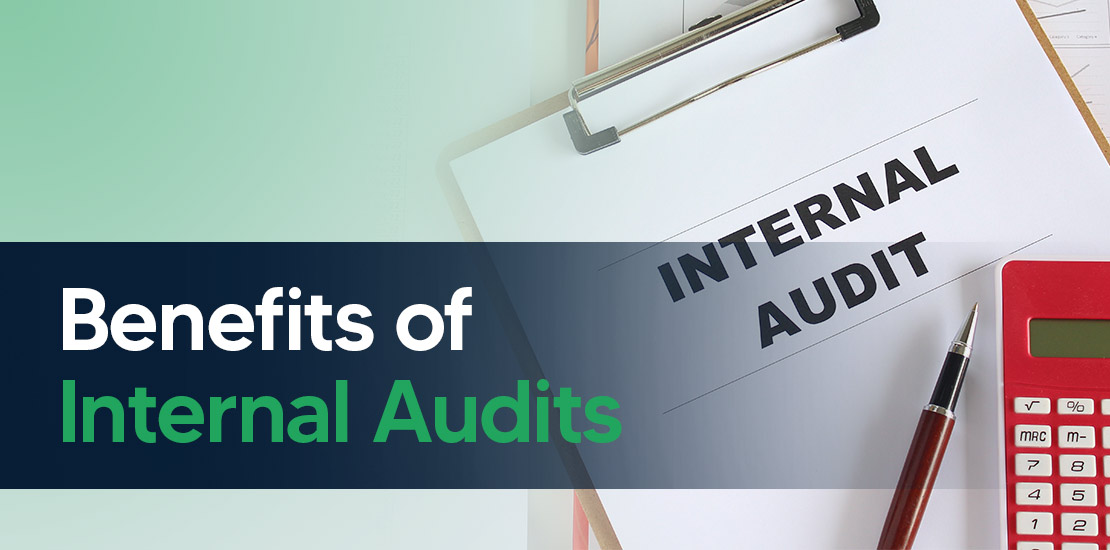Table of Contents
- What Is the UAE Corporate Tax Penalty Waiver?
- Why the UAE Launched the Corporate Tax Penalty Waiver
- Aims of the Waiver
- Who Qualifies for the UAE Corporate Tax Penalty Waiver?
- How to Register for Corporate Tax and File on Time in the UAE
- Penalties Without the Waiver
- How to Apply for a Refund If You Already Paid a Penalty (Under UAE Corporate Tax Waiver)
- Cases Where the UAE Corporate Tax Penalty Waiver Applies
- Penalties for Corporate Tax Non-Compliance in the UAE
- How Businesses Can Avoid Corporate Tax Penalties in the UAE
- Secure Your Compliance with Shuraa Tax
With the implementation of the UAE Corporate Tax regime, businesses across the Emirates are expected to comply with the new tax rules. Failing to meet these obligations can result in significant Corporate Tax fines in UAE, including penalties for late registration, incorrect filing, and non-compliance.
In this blog, we’ll break down the penalties for UAE Corporate Tax, explore the UAE Corporate Tax Penalty Waiver, and provide clear steps to avoid these costly fines.
What Is the UAE Corporate Tax Penalty Waiver?
The UAE Corporate Tax Penalty Waiver is a government-backed relief initiative launched by the Ministry of Finance and implemented by the Federal Tax Authority (FTA). It is designed to support businesses that may have struggled to comply with new tax regulations, especially during the initial phases of implementing the UAE’s corporate tax system.
Under this waiver scheme, eligible businesses can apply to have administrative penalties reduced or completely waived, provided they fulfil certain conditions. These penalties typically include fines related to:
- Late registration for corporate tax
- Late filing of tax returns
- Late payment of corporate tax liabilities
- Failure to maintain proper accounting records
- Other non-compliance actions under the UAE Tax Procedures Law
Why the UAE Launched the Corporate Tax Penalty Waiver
The UAE government introduced the corporate tax penalty waiver as a strategic move to support the business community during the early stages of the new corporate tax regime. Here’s a breakdown of the key reasons behind this initiative:
1. Encourage Voluntary Tax Compliance
The waiver motivates businesses to come forward, register, and comply with tax regulations without fear of heavy penalties. This builds a culture of self-compliance rather than enforcement-led compliance.
2. Ease the Transition to the New Corporate Tax Regime
Since corporate tax is a new concept for many businesses in the UAE, the waiver serves as a grace period. It helps companies understand, adapt, and comply with new tax laws without the immediate burden of fines.
3. Support Businesses with New Reporting Standards
Filing taxes involves new financial reporting, recordkeeping, and documentation. The waiver acknowledges this learning curve and provides businesses, especially small and medium enterprises (SMEs), breathing room to adjust appropriately.
4. Strengthen Economic Stability
By reducing legal and financial stress, especially on smaller firms, the waiver promotes a healthier business environment. This helps maintain investor confidence and economic growth in the face of regulatory changes.
The UAE’s goal is not to punish businesses, but to guide them towards full compliance while maintaining a stable and supportive economic environment.
Aims of the Waiver
The UAE Corporate Tax Penalty Waiver is more than just a short-term financial relief — it’s a strategic move by the government with broader goals in mind:
1. Promoting Long-Term Compliance
By offering a second chance to businesses, the waiver encourages them to meet their tax responsibilities moving forward consistently. It builds a habit of timely registration, filing, and payment, aligning businesses with the new tax culture in the UAE.
2. Educating Businesses on Their Tax Obligations
The waiver period serves as an educational window. Businesses unfamiliar with the new corporate tax regime have the opportunity to learn about their duties without facing harsh penalties immediately.
3. Creating a Fair and Transparent Tax Environment
The initiative supports a level playing field where all companies are held to the same standards. Transparent rules and penalty relief help build trust between authorities and businesses.
4. Minimising Errors in Initial Tax Filings
As the law is new, mistakes are expected. The waiver helps businesses correct these early errors without facing punitive consequences, thus reducing the administrative burden on both the taxpayer and the government.
In short, the waiver aims to build a strong, compliant, and educated business community in line with international tax standards.
Who Qualifies for the UAE Corporate Tax Penalty Waiver?
Your business may be eligible for the UAE Corporate Tax penalty waiver if it takes the right corrective actions within the stipulated timeframe. The Federal Tax Authority (FTA) has outlined key conditions businesses must meet to qualify:
1. Timely Payment of Taxes
You must pay all outstanding corporate tax dues by the deadline set by the FTA. Without clearing your liabilities, you won’t be considered for the waiver.
2. Accurate Tax Return Filing
Your corporate tax returns should be filed accurately and on time. Filing errors or delays can disqualify your business from the waiver benefits.
3. Correction of Errors
If you’ve made any mistakes or left out information in previous tax filings, you must correct those errors through proper channels before applying.
4. Voluntary Disclosure Compliance
You must meet the criteria for voluntary disclosure, as defined by the FTA. This means proactively coming forward to correct your filings before the FTA identifies the issue.
Important Note:
The FTA may reject waiver requests in the following cases:
- If your business fails to meet any of the above conditions
- If the penalties were imposed due to fraudulent behaviour or intentional misreporting
- Being proactive, transparent, and compliant is essential to benefit from the waiver scheme.
How to Register for Corporate Tax and File on Time in the UAE
To avoid penalties and stay compliant with UAE’s Corporate Tax law, businesses must follow a structured process for registration and timely filing:
Step 1: Register on the EmaraTax Portal
All businesses, whether taxable or not, must register for Corporate Tax through the EmaraTax portal. This is a mandatory step introduced by the Federal Tax Authority (FTA).
Even if your business qualifies for a 0% rate or exemption, registration is still required.
Step 2: Prepare and Upload Required Documents
Before starting your registration, keep the following documents ready:
- Valid Trade License(s)
- Emirates ID of business owners or authorised signatories
- Passport copies of shareholders/owners
- MOA (Memorandum of Association) or relevant formation documents
- Details of business activities and the financial year
- Contact details (email, mobile, office address)
Step 3: File Tax Returns on Time
Corporate Tax returns must be filed within 9 months from the end of your financial year.
For example:
- If your financial year ends on 31st December 2024, you must file by 30th September 2025.
Late filing can lead to hefty penalties, so mark the deadlines and set reminders in advance.
Step 4: Maintain Proper Records
The FTA mandates businesses to maintain records for at least 7 years, including:
- Financial statements
- Tax invoices and receipts
- Contracts and agreements
- Audit reports (if applicable)
These records must be readily available in the event of an inspection or audit.
Pro Tip
If you are unsure about the process, consult a tax agent or business setup consultant to ensure your documents and filings are in order.
Penalties Without the Waiver
If your business does not meet the criteria for the UAE Corporate Tax penalty waiver or misses key deadlines, you could face the following hefty fines under the Federal Tax Authority (FTA) regulations:
1. AED 10,000 – Failure to Register on Time
If you fail to register for Corporate Tax within the prescribed timeline, you’ll be fined AED 10,000 even if your business is not liable to pay tax yet. Registration is mandatory for all eligible entities.
2. AED 500 to AED 20,000 – Late Filing of Tax Returns
Submitting your Corporate Tax return after the due date can result in fines ranging from AED 500 to AED 20,000, depending on the length of the delay and any history of non-compliance.
3. AED 1,000 per Day – Delay in Providing Information
If the FTA requests specific documentation or data and you delay submitting it, you can be fined AED 1,000 per day, with the amount increasing the longer you delay.
4. AED 20,000 – Inadequate Record Keeping
Failing to maintain proper financial and accounting records as per FTA guidelines will incur a flat penalty of AED 20,000. This includes failure to retain tax invoices, ledgers, and other key documents.
5. Up to 200% of Tax Due – Filing Incorrect Returns
Submitting false or incorrect tax returns — whether intentionally or due to negligence — can attract penalties of up to 200% of the unpaid tax amount, making this one of the most serious violations.
Why It Matters
These penalties can have a severe impact on cash flow, particularly for startups and small to medium-sized enterprises (SMEs). Non-compliance also risks FTA audits, license suspensions, and reputational damage.
Tip: Always file on time, keep records updated, and seek professional tax advice to avoid unnecessary penalties.
How to Apply for a Refund If You Already Paid a Penalty (Under UAE Corporate Tax Waiver)
If you’ve already paid a penalty that qualifies for relief under the UAE Corporate Tax Penalty Waiver scheme, you can apply to get that amount refunded. Here’s how:
Step 1: Log In to the EmaraTax Portal
Visit https://eservices.tax.gov.ae and log in using your EmaraTax credentials.
Step 2: Submit a Request for Reconsideration
- Navigate to the “Reconsideration” section.
- Choose the relevant penalty you’ve already paid.
- Provide all supporting documents, such as payment receipts, proof of voluntary disclosure (if applicable), and any compliance evidence.
Step 3: Track Your Request
- Once submitted, you can monitor the status of your request in the EmaraTax dashboard.
- The system may notify you if any additional information is required.
Important Notes
- Refunds are not automatic; you must submit a formal request.
- Approval is at the discretion of the Federal Tax Authority (FTA).
- Ensure your request aligns with the waiver eligibility criteria — including timely tax filing, payment, and voluntary disclosures.
Cases Where the UAE Corporate Tax Penalty Waiver Applies
The UAE Corporate Tax penalty waiver is designed to support businesses during the transition to the new tax regime. It applies in specific situations where businesses have made unintentional errors or faced genuine challenges. Common scenarios include:
Case 1: Failure to Register Due to Lack of Awareness
Businesses that missed the registration deadline during the early implementation phase—especially small to medium-sized enterprises (SMEs)—may be considered for a waiver if they can demonstrate that they were unaware of the requirement and acted promptly once informed.
Case 2: Filing Errors Due to First-Time Compliance Challenges
Mistakes in initial tax filings, especially by businesses new to corporate tax compliance, may be excused if they show efforts were made to understand and follow the law.
Case 3: Late Payments Caused by Genuine Financial Hardship
Companies experiencing cash flow problems or financial distress that have delayed their tax payments might be eligible if they can substantiate their financial difficulties and have since paid or committed to paying the due amount.
Case 4: Voluntary Disclosures Made in Good Faith
If a business voluntarily corrects its previous filings or discloses omissions/errors before being contacted by the FTA, the waiver may apply—provided the disclosure was honest and timely.
Important
Each case is assessed individually by the Federal Tax Authority (FTA). Businesses must provide complete documentation and clear justifications to support their waiver request.
This approach encourages transparency and responsible behaviour while helping businesses stay compliant without excessive financial burden.
Penalties for Corporate Tax Non-Compliance in the UAE
Non-compliance with the UAE Corporate Tax law can result in serious financial, legal, and reputational consequences. Below are the everyday non-compliant actions and their potential outcomes:
1. Not Registering for Corporate Tax
All eligible businesses must register for corporate tax through the EmaraTax portal. Failing to do so can lead to:
- A fixed penalty (e.g., AED 10,000)
- Potential daily fines until the registration is completed
- Delay in refunds or other tax-related benefits
2. Submitting False or Misleading Information
Providing incorrect financial data, underreporting income, or misrepresenting expenses can trigger:
- Penalties of up to 200% of the unpaid tax amount
- Legal actions for fraud or deliberate tax evasion
- Loss of future eligibility for waiver schemes
3. Failing to File Returns or Pay Dues
Tax returns must be filed, and payments made on time. Delays or failures can lead to:
- Fines ranging from AED 500 to AED 20,000 for late filing
- Daily penalties for ongoing non-compliance
- Interest on overdue tax payments
4. Ignoring Audit Requests from the FTA
If the Federal Tax Authority (FTA) requests documentation or initiates an audit, businesses must comply with the request. Non-compliance can result in:
- Additional penalties for obstruction
- Forced assessments based on FTA estimations
- Suspension of tax certificates or licenses
Consequences Beyond Penalties
In addition to monetary fines, non-compliance can lead to:
- Legal action and court cases
- Reputational damage affecting business relationships
- Operational disruptions including license issues or blacklisting
Key Tip: Stay proactive—register on time, file accurately, and respond promptly to FTA communications to avoid penalties.
How Businesses Can Avoid Corporate Tax Penalties in the UAE
Avoiding corporate tax penalties in the UAE is entirely possible if businesses take a proactive and compliant approach. Here’s how:
1. Register Early
- Businesses must register for UAE Corporate Tax through the EmaraTax portal within the required timeframe.
- Late registration incurs penalties starting from AED 10,000, so it’s essential to act promptly—even if your company isn’t yet taxable.
2. Know Your Filing Deadlines
- Tax returns must be filed within 9 months after the end of your financial year.
- Missing deadlines can result in fines ranging from AED 500 to AED 20,000, depending on the severity of the delay and its recurrence.
3. Maintain Accurate Financial Records
- Keep proper documentation of:
- Revenues
- Expenses
- Tax calculations
- Supporting documents like invoices, contracts, and receipts
- Failure to maintain adequate records may result in penalties of AED 20,000 or more.
4. Consult with Tax Experts
- Hiring a qualified tax consultant helps ensure that your business:
- Applies the right tax treatment
- Avoids filing errors
- Is audit-ready in case of FTA scrutiny
5. Stay Updated on FTA Guidelines
- The UAE tax landscape is still evolving. Regularly check for updates from the Federal Tax Authority (FTA).
- Ignorance of changes does not exempt you from compliance, and violations can lead to both financial and legal consequences.
Being early, accurate, and informed—with the support of tax professionals—can help your business stay penalty-free in the UAE corporate tax system.
Secure Your Compliance with Shuraa Tax
Navigating the UAE’s evolving tax landscape can be challenging, but avoiding UAE corporate tax penalties doesn’t have to be. Whether you’re dealing with corporate tax fines in the UAE, concerned about penalties for UAE corporate tax, or trying to avoid a UAE corporate tax late registration penalty, Shuraa Tax is here to help.
Our team ensures your business stays fully compliant—from accurate registration to timely filings and strategic waiver applications. With our expert support, you can minimize risks and focus on growth.
📞 Call: +(971) 44081900
💬 WhatsApp: +(971) 508912062
📧 Email: info@shuraatax.com
Let Shuraa Tax keep your business penalty-free and tax-compliant in the UAE.













